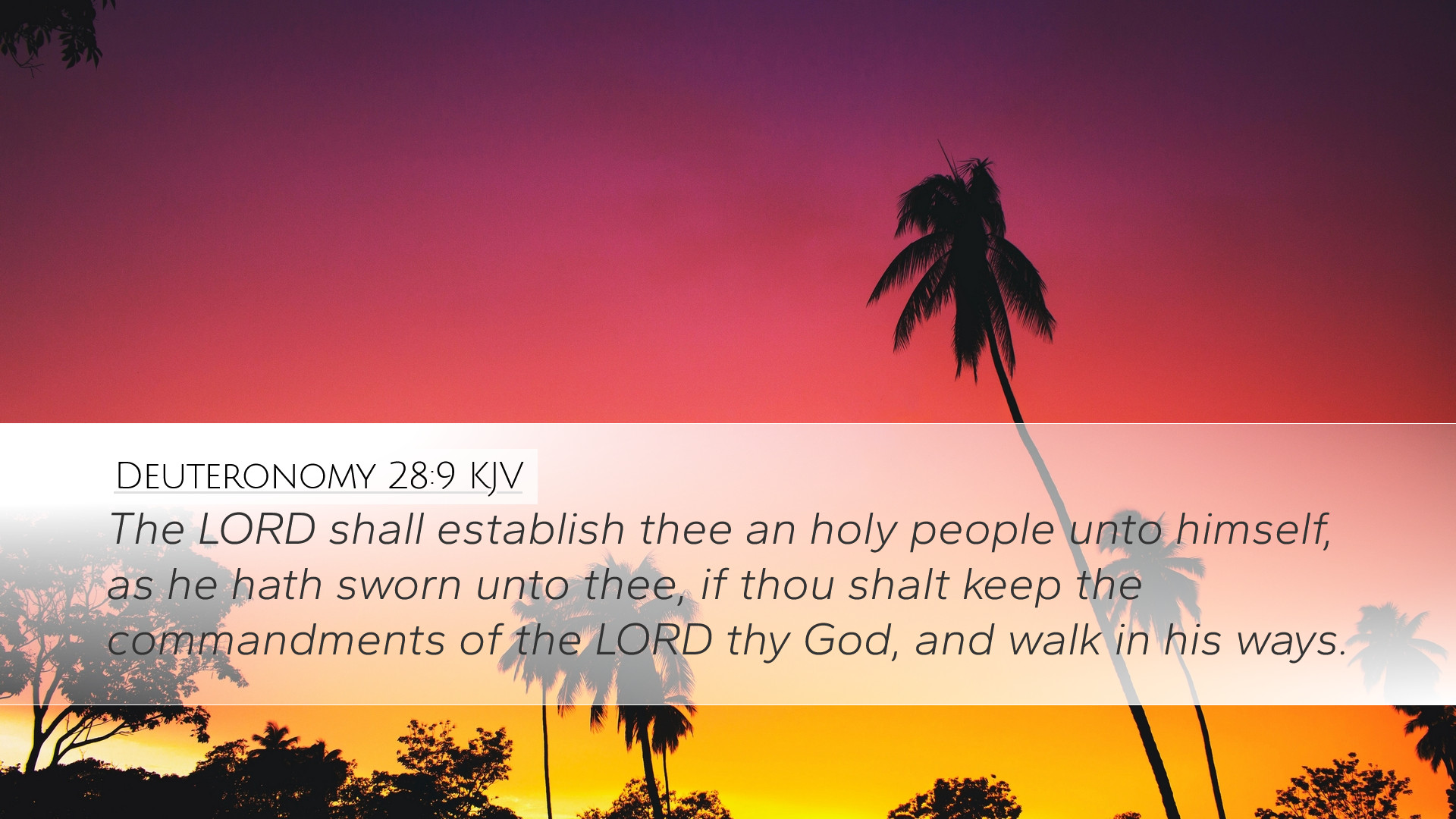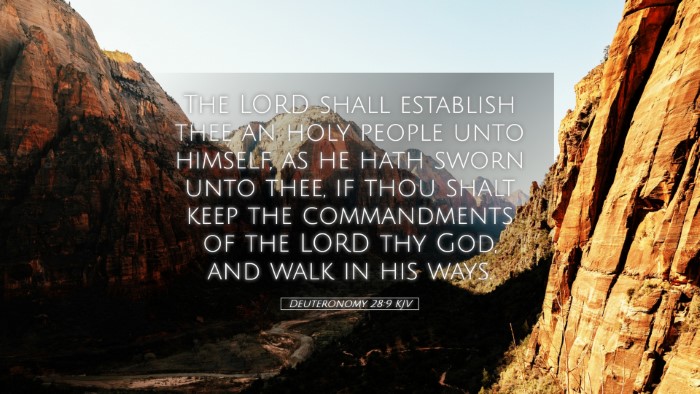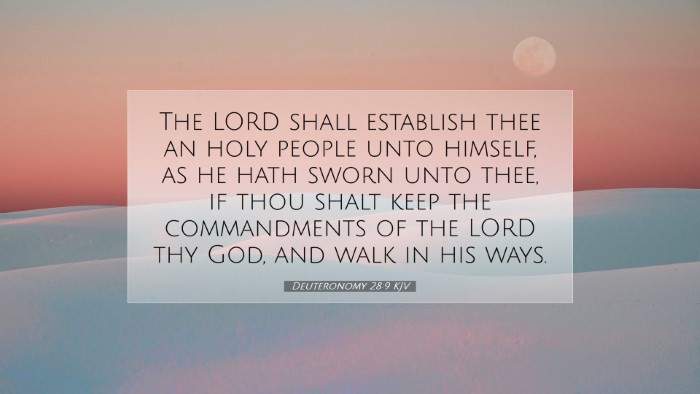Commentary on Deuteronomy 28:9
Verse: "The LORD will establish you as his holy people, as he promised you on oath, if you keep the commands of the LORD your God and walk in obedience to him." (NIV)
Introduction
Deuteronomy 28 is a critical chapter in the Mosaic covenant, detailing blessings and curses that hinge upon the obedience of the Israelites to God's commands. Verse 9 is a pivotal verse that emphasizes God's promise to His people, contingent on their faithfulness and adherence to His laws.
Theological Significance
Divine Promise and Human Response: This verse captures a fundamental biblical principle: the conditional nature of God’s promises. The blessings promised by God are predicated upon the people's obedience. According to Matthew Henry's Commentary, the establishment of Israel as a holy nation reflects God’s intention to dwell among His people and set them apart for His purpose.
Henry further suggests that this concept of being established goes beyond mere national recognition; it involves a profound spiritual interaction between God and Israel, where obedience leads to sanctification.
Commentary Insights
- Matthew Henry: Henry emphasizes that God’s covenant is not merely a contract but a relationship that demands fidelity. The notion of being "established" indicates a firm, unshakeable foundation in God, relying solely on His guidance and commands.
- Albert Barnes: Barnes presents the idea that the establishment as a "holy people" signifies both a status and a calling. This holiness differentiates them from other nations, positioning them as God's representatives on earth. Barnes notes that this establishment is also a call to moral and ethical living in accordance with God’s laws.
- Adam Clarke: Clarke discusses the cultural implications of holiness, indicating that being a "holy people" meant living out God’s commands in all aspects of life, thus serving as a light to the nations. He underscores the dual aspect of obedience—both in ritual and lifestyle. Clarke argues that the promise of God initializing their holiness involved not just spiritual practices but a holistic transformation of society.
Conditions of the Covenant
The crux of Deuteronomy 28:9 centers on the conditionality presented: "if you keep the commands." This phrase is critical, as it ties the blessings received to the active participation of the people in maintaining their covenant with God. Each commentator stresses this vital point:
- Henry: He emphasizes that the "if" indicates accountability—God's blessings cannot be presumed without active compliance with His commands.
- Barnes: Barnes reminds readers that obedience is not just about following rules but is a reflection of a deeper relationship with God, where love and respect for God’s authority manifest in practice.
- Clarke: Clarke points out that the commands encompass not only laws but the prophetic and ethical directives that guide daily living, implying that obedience is comprehensive and integral to the community's identity.
The Role of Obedience
Spiritual and Ethical Dimensions: The call to "walk in obedience" highlights a lifestyle characterized by faith and action. It signals a journey of continual growth and commitment towards God’s ways.
- Henry’s Insights: Henry reminds us that walking signifies a daily, deliberate choice to align oneself with God’s commands. This journey is transformative and requires perseverance and dedication.
- Barnes's Perspective: Barnes asserts that such obedience must come from a heart dedicated to God, not merely external compliance. It's an issue of the heart, indicative of true worship and reverence for God.
- Clarke's Application: Clarke relates the concept of walking in obedience to the daily decisions faced by believers, suggesting that they must constantly seek God’s guidance to remain faithful to His commandments.
Contemporary Application
This verse continues to resonate with modern readers and believers, reminding them that God's promises remain valid today, grounded in obedience and relationship. In a world often characterized by disobedience to divine principles, this verse serves as a warning and encouragement:
- The importance of establishing personal holiness, as well as corporate identity as a body of believers.
- The understanding that blessings from God are inherently related to the way we choose to live, emphasizing ethical behavior and moral choices.
- The call to uphold God’s commands as a defining characteristic of true worship, illustrating the ongoing relevance of biblical principles in contemporary life.
Conclusion
Deuteronomy 28:9 encapsulates a vital theological truth regarding the interplay between God's faithfulness and human responsibility. It serves not just as a historical admonition for Israel but as an enduring message to believers today about the necessity of obedience, the call to holiness, and the promise of divine establishment. As Matthew Henry, Albert Barnes, and Adam Clarke articulate, this verse is a reminder that our relationship with God is cultivated through faithful adherence to His commands, leading to profound blessings in both individual and communal contexts.


